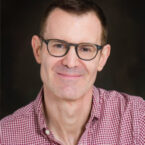Using AEDP to Overcome Shame and Heal Attachment Trauma with Gay and Straight Men
with Benjamin Lipton, LCSW and Ben Medley, LCSW-R
Perhaps with the exception of anger, emotions are feminized and shamed in our society. For men, this has created a pernicious demand for defensive strategies of denial and dissociation that conceal underlying shame and unbearable feelings of aloneness. As a result, men have been thwarted from reaping the psychological and social rewards of feeling one’s emotions. The cost of this phenomenon, not only in terms of personal well-being, but also societal development, has been great.
For gay men, growing up in a world that favors and expects heterosexuality can be a doubly alienating and traumatic experience. From a very early age, boys become aware of homophobia and heterosexism and begin to receive clear messages that being gay is not okay. Often these boys, adolescents and, eventually, grown men are left carrying their struggles, and the pathogenic feelings attached to being gay in a homophobic world, alone.
With its specific focus on accessing and processing emotion from a therapeutic stance of affirmation and authenticity, AEDP offers the clinician theoretical knowledge and a set of operational tools particularly well suited to address the psychological needs of men, both gay and straight. By dyadically co-creating new, positive experiences and deeply processing adaptive emotions in the context of a supportive, authentic, emotionally engaged relationship, men can recover and discover themselves. For straight men, this experience opens the door to possibilities of relating to themselves and others with authenticity and compassion. For gay men, this experience goes one step further by undoing the shame of internalized homophobia and allowing their True Selves to be seen, affirmed, and integrated.
Using extensive videotape from their clinical work, the presenters will illustrate specific ways that AEDP can be used to address the therapeutic needs of men that so often center on shame and aloneness. Through the lens of AEDP theory and technique, we will first examine the ways that AEDP’s focus on healing attachment trauma provides a framework for work with gay men. Then, we will explore the paradoxical ways in which gay male therapists, grounded in the AEDP therapeutic stance, seem to offer unique opportunities for healing the psychological wounds of their straight male clients.
You’ll Learn:
- Men are shamed out of feeling their wired-in, adaptive emotions
- Feminization of emotions leads to a psychological crisis for boys
- Homophobia and heterosexism create feelings of otherness in gay children
- Attachment trauma can occur as a result of overwhelming experiences suffered alone
- Many gay children and adolescents are left alone with feelings of shame
- Shame and fear of being ostracized lead boys and men to create a false self to maintain attachment bonds while suffering alone with intense feelings.
- This dynamic is often intensified and compounded for gay boys and men.
- AEDP helps heal attachment trauma through its specific stance, a focus on processing emotions to completion, making the implicit explicit, privileging healthy emotional risk-taking, undoing aloneness, and meta-processing of new experiences
- AEDP provides a therapeutic opportunity for the client’s True Self to emerge
Objectives:
At the end of this program, participants will learn:
- How homophobia and heterosexism impact our both gay and straight men
- How to recognize and undo shame with male clients
- How to use the AEDP stance, self-disclosure and dyadic regulation of affect to undo aloneness and foster secure connection with male clients
- How to use the AEDP technique of metaprocessing to expand and anchor new emotional and relational experiences to help heal trauma and potentiate resilience
Meet the Presenters

Benjamin Lipton, LCSW
Benjamin Lipton, LCSW, is a Senior and founding Faculty member of the AEDP Institute. He has been instrumental in the development and teaching of AEDP across the US and in Canada, Sweden, Israel, Norway, and Denmark. He also supervises individuals and small groups of clinicians learning AEDP around the world. A sought after teacher and speaker, Ben is known for his open and engaging style, his humor, and his particular ability to translate complex theoretical concepts into user-friendly, accessible and engaging learning experiences. Ben has edited a book and contributed many book chapters and articles in psychology and social service journals as well as mainstream magazines. His most recent publication is a chapter on therapeutic presence in Undoing Aloneness & the Transformation of Suffering Into Flourishing: AEDP 2.0 edited by Diana Fosha. During the height of the HIV/AIDS epidemic in the US, Ben was the Director of Clinical Services at Gay Men’s Health Crisis (GMHC), (Read More…)
Ben Medley, LCSW
Ben is an AEDP senior faculty member and has taught AEDP internationally with the AEDP Institute, the National Institute of Psychotherapy, the Cape Cod Institute, NASW and in mental health organizations and clinical practices. He has a private practice in New York City and specializes in working with the LGBTQ+ community.
Ben earned his degree in Clinical Social Work with the NYU Silver School of Social Work. Before private practice, Ben worked in Greenwich House’s HIV mental health program and the Jewish Board of Family and Children’s Services’ LGBTQ+ mental health treatment unit. His paper “Recovering the True Self: Affirmative Therapy, Attachment and AEDP in Psychotherapy with Gay Men” is published with the SEPI Journal: the Journal of Psychotherapy Integration and he has written a chapter on using (Read More…)
Requirements, Fees, Registration
On Demand Trainings are to be viewed on your private computer or smart device. They are intentionally not downloadable; we “stream” them. So, having a high speed Internet connection is important to having a good learning experience.
This training is intended to be viewed only by mental health professionals and students in mental health or related fields. You will be asked to provide evidence of your professional credentials before completing registration and payment.
Fees and Registration
- $149
- $129 AEDP Institute Members only, you must be logged in to receive the discounted price.
